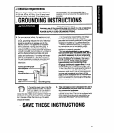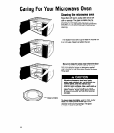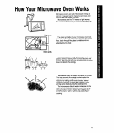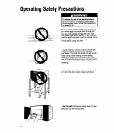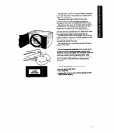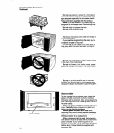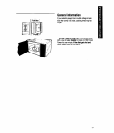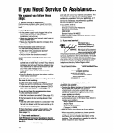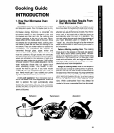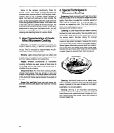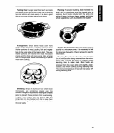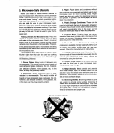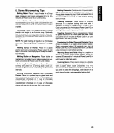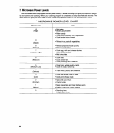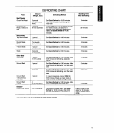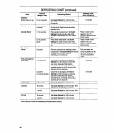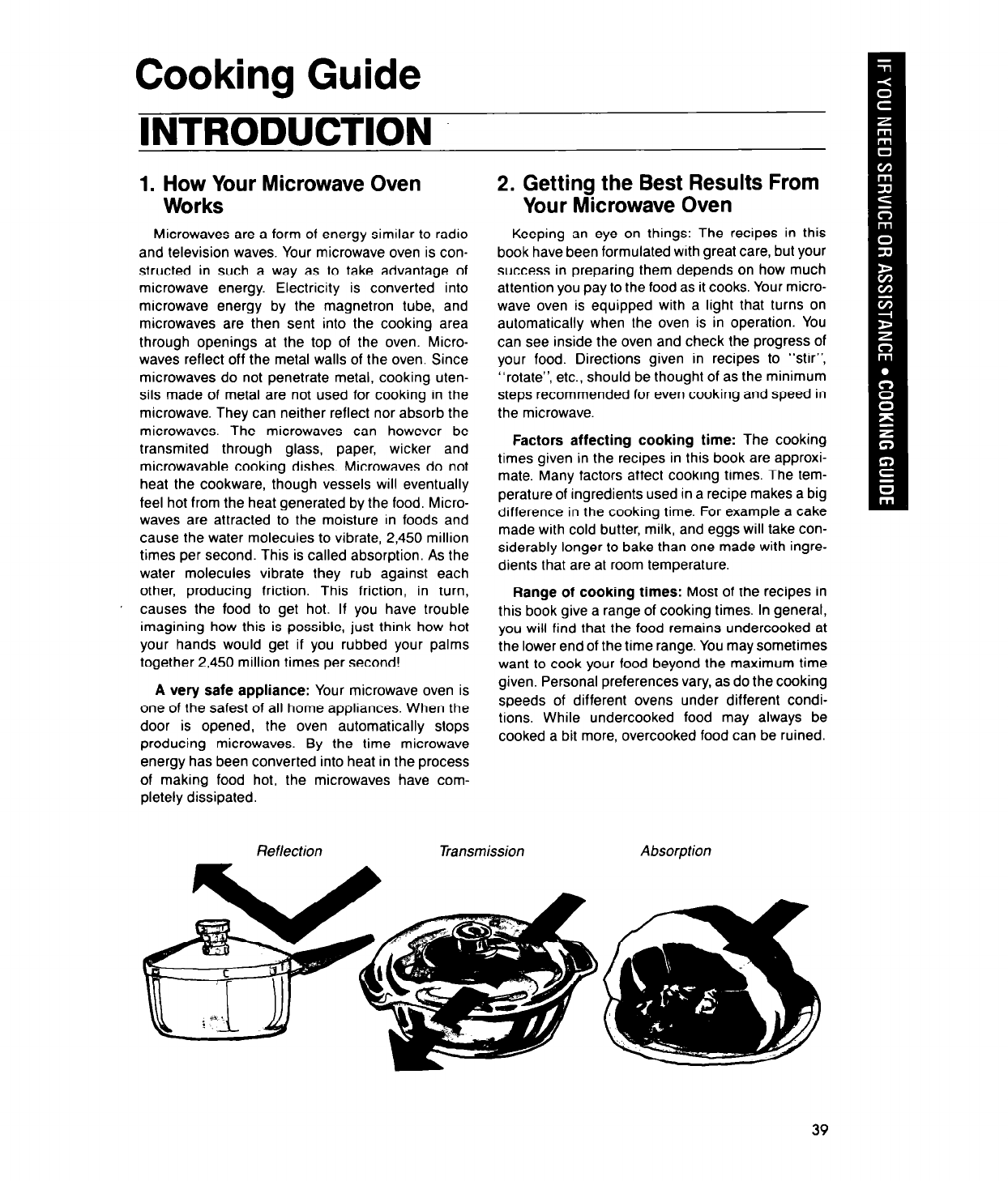
Cooking Guide
INTRODUCTION
1. How Your Microwave Oven
2. Getting the Best Results From
Works
Your Microwave Oven
Microwaves are a form of energy similar to radio
and television waves. Your microwave oven is con-
structed in such a way as to take advantage of
microwave energy. Electricity is converted into
microwave energy by the magnetron tube, and
microwaves are then sent into the cooking area
through openings at the top of the oven. Micro-
waves reflect off the metal walls of the oven. Since
microwaves do not penetrate metal, cooking uten-
sils made of metal are not used for cooking In the
microwave. They can neither reflect nor absorb the
microwaves. The microwaves can however be
transmited through glass, paper, wicker and
microwavable cooking dishes. Microwaves do not
heat the cookware, though vessels will eventually
feel hot from the heat generated by the food. Micro-
waves are attracted to the moisture in foods and
cause the water molecules to vibrate, 2,450 million
times per second. This is called absorption. As the
water molecules vibrate they rub against each
other, producing friction. This friction, in turn,
causes the food to get hot. If you have trouble
imagining how this is possible, just think how hot
your hands would get if you rubbed your palms
together 2,450 million times per second!
Keeping an eye on things: The recipes in this
book have been formulated wrth great care, but your
success in preparing them depends on how much
attention you pay to the food as it cooks. Your micro-
wave oven is equipped with a light that turns on
automatically when the oven is in operation. You
can see inside the oven and check the progress of
your food. Directions given in recipes to “stir”,
“rotate”, etc., should be thought of as the minimum
steps recommended for even cooking and speed in
the microwave.
Factors affecting cooking time: The cooking
times given in the recipes in this book are approxi-
mate. Many factors affect cooking times. The tem-
perature of ingredients used in a recipe makes a big
difference in the cooking time. For example a cake
made with cold butter, milk, and eggs will take con-
siderably longer to bake than one made with ingre-
dients that are at room temperature.
A very safe appliance: Your microwave oven is
one of the safest of all home appliances. When the
door is opened, the oven automatically stops
producing microwaves. By the time microwave
energy has been converted into heat in the process
of making food hot, the microwaves have com-
pletely dissipated.
Range of cooking times: Most of the recipes in
this book give a range of cooking times. In general,
you will find that the food remains undercooked at
the lower end of the time range. You may sometimes
want to cook your food beyond the maximum time
given. Personal preferences vary, as do the cooking
speeds of different ovens under different condi-
tions While undercooked food may always be
cooked a bit more, overcooked food can be ruined.
Absorption Reflection Transmission
39



